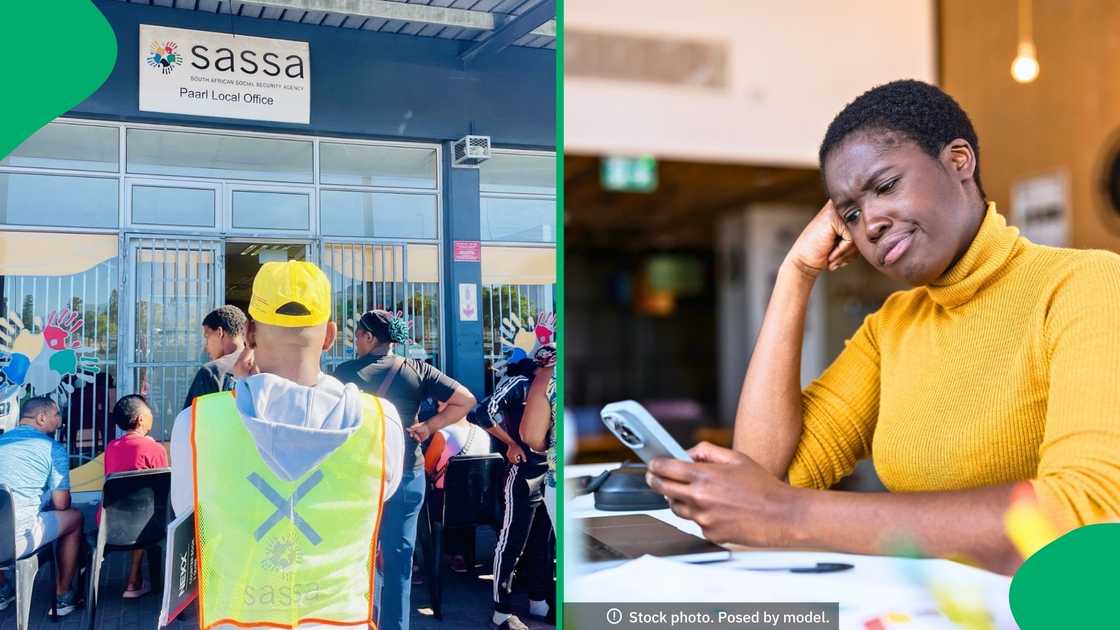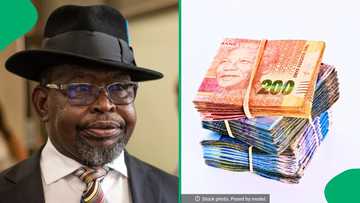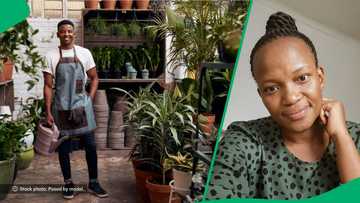Over 40% of South Africans Receive a Social Grant, Mzansi Says Foreigners Are Benefitting As Well
- The General Household Survey revealed that 25.4 million people in South Africa benefited from a social grant
- The survey, released by Statistics South Africa (Stats SA), focused on a variety of subjects affecting citizens
- South Africans didn't agree with the stats, arguing that a lot of foreigners were also benefiting from the grants
Don't miss out! Join Briefly News Sports channel on WhatsApp now!

Source: Getty Images
Briefly News journalist Byron Pillay has dedicated a decade to reporting on the South African political landscape, crime, and social issues. He spent 10 years working for the Northern Natal Courier before transitioning to online journalism.
Over 40% of South Africans benefit from a social grant.
That is according to the General Household Survey, which was released by Statistics South Africa (Stats SA).
The stats were released on 27 May 2025, and focused on a variety of subjects including education, health, access to services and facilities, and quality of life.
PAY ATTENTION: Briefly News is now on YouTube! Check out our interviews on Briefly TV Life now!
25.4 million receive social grants
The survey showed that in the past 21 years, the percentage of individuals who benefited from social grants increased from 12,8% to 40,1%.
This means that 25.4 million individuals in the country currently benefit from a grant. The survey also found that 50.4% of households had at least one individual who received a grant.
It’s noted that the increases were mainly due to the introduction of COVID-19 Social Relief of Distress (SRD) grants. In his second budget speech on 12 March, Finance Minister Enoch Godongwana announced that R248 billion was set aside for grants.
South Africans have also previously been divided by the number of mothers receiving a child grant. In March 2025, social media was divided when a 37-year-old mother of nine was begging for a social grant.
Unemployment rate also increases in South Africa
The survey also revealed that the official unemployment rate increased to 32.9% in the first quarter of 2025, making South Africa the country with the highest unemployment rate globally.
This has also given rise to more people needing to rely on social grants over the years.
The General Household Survey also revealed that there was a decline in cases where a salary was the main source of income. In 2009, salaries accounted for nearly 60% of household income, while now the rate sits at 54.5%.
Social media users weigh in on stats
Social media users had their say on the increase in grant dependents, with many arguing that it wasn’t just South Africans who benefited from grants in the country.
Telly Thabi Mthiyane stated:
“Even foreigners are getting social grants.”
Spha Alwande added:
“It's not proper to say South Africans, but rather people living in South Africa. Because the stats also include immigrants, mostly illegal, who are benefiting from these grants.”
Thokozanii Ndlovu said:
“What I know is that the Home Affairs Department has issued a lot of identity documents to foreign nationals through fraudulent activities and bribes. Other common factors are teenage pregnancy and poverty, escalating in lower-income households. Unemployment and nepotism have left many graduates unemployed today. Retailers and other private companies had employed foreign nationals, too. The SA government needs to consider citizens first.”

Read also
South Africa spends R1.21bn daily to service debt, UNISA professor weighs in on country's challenges
Odwa Mlinjana Odzz noted:
“You would be surprised to see how many foreigners are getting social grants.”
Sakhokwakhe Derick Shongwe added:
“The ship keeps sinking, but some passengers are busy applauding the captain, who has no idea what he is doing.”
Faith Smith suggested:
“Remove all immigrants and prioritise South Africans first.”
Thabo Mdunjana added:
“It's because foreigners are getting it also. Corrupt SASSA.”
Petition made for an increase in grant amount
In May 2025, a petition was made for the old age grant to be increased to R5,000, as pensioners were struggling to survive.
Despite the petition, the Department of Social Development admitted that it was not feasible to increase the current amount by so much.
Briefly News reported how South Africans suggested how the government could free up more money for this cause.
PAY ATTENTION: Follow Briefly News on Twitter and never miss the hottest topics! Find us at @brieflyza!
Source: Briefly News



